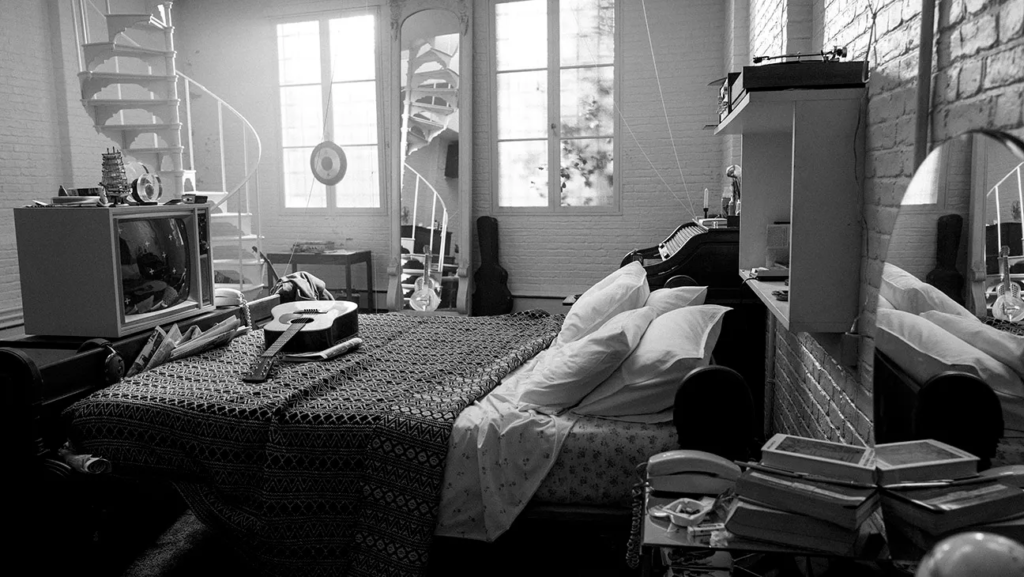Director: Kevin Macdonald, Sam Rice-Edwards
Stars: John Lennon, Yoko Ono
Synopsis: Set in 1972 New York, this documentary explores John and Yoko’s world amid a turbulent era. Centered on the One to One charity concert for special needs children, it features unseen archives, home movies, and restored footage.
John Lennon and Yoko Ono; Yoko Ono and John Lennon. Two intertwined souls with a messy life who separated from each other and later found themselves crawling back into each other’s arms. This union faced huge public scrutiny, some even for selfish reasons because it was one of the many reasons The Beatles broke up–although it was the less severe reason. There were also comments about Lennon being in an interracial relationship rooted in racism and villainizing Yoko for years. Nevertheless, the two distanced themselves from it all and started doing creative activist collaborations and peace scriptures, which left a legacy under their heads apart from the Beatles’ legendary catalog.

This is the time that Kevin Macdonald’s (The Last King of Scotland, The Mauritanian) latest documentary, One to One: John & Yoko (screening Out of Competition in this year’s Venice Film Festival), covers–the period after “Let it Be” and the final public performance of the band, which Peter Jackson remastered and brought back to life in The Get Back, where the two lovers have escaped to a Greenwich Village apartment in New York City. Titled after the 1972 benefit concert of the same name, this documentary, made alongside the John Lennon estate (an immediate warning that many things will be kept hidden), is framed around a quote the ex-Beatle said about television. He refers to it as a “window onto the world”.
Both critical of people’s abuse of television and appreciative of its potential to cover the issues of the times, Lennon spent many years under the microscope of fame dissection. He grew tired of it all and moved to another place, conducting his artistic experiments in music and activism. Macdonald shows us archive footage of Lennon and Yoko relaxing in their apartment and contemplating the future of America. But he also recreates the interior of the housing to create a dual image of their respective works’ impact by presenting the duo watching TV–in wonder and worried about multi-channel news outlets that cover Nixon’s run for his second term, peace protests, Allen Ginsburg, as well as the tumultuous ads that screened in-between reports.
Everything–reality and fiction, art and culture, past and present–melds stylistically in a clunky yet fascinating manner. It is a channel-surfing experience where a resurrected Lennon looks through the televised world. Editing-wise, One to One is slick. Macdonald cuts from Lennon’s archive footage, from the benefit concert or his writing process, to time-appropriate adverts and news reports with flair. Lennon on the piano transitions to a pink Chevrolet commercial or the Sonny and Cher Show. Yoko Ono discusses Lennon’s preparation and recent scripture transitions to Richard Nixon clips. The Scottish filmmaker does not do anything new or otherworldly with the form, yet you are somewhat hooked on his vision for the project.

Where One to One falters is its structure, where the archive footage to advert to the news report to another advert backbone paves the way for a jarring narrative thread about consumerism in a capitalist America and the injustices its military has caused. This is meant to explore the relationship between John Lennon and Yoko Ono’s activism with the state of the world in the early 70s, both in art and politics–more so the latter. Macdonald focuses too much on needless nostalgia and pop culture rather than the subjects’ fingerprints on the times. It comes off as superfluous. However, one other critical detail makes the project lose some respect. Near the beginning of One to One, we hear a quote from John Lennon that hints at his distant nature, both literally and figuratively.
“I don’t want to relive the past,” the ex-Beatle says, referring to his life in the band and the problems that have cast a dark cloud over his head. He does not want to return to a life that has cursed him until the time is right. However, the quote does not match the making of this documentary. One to One has footage of Lennon and Yoko at an intimate and separate time in their lives. Yet, it feels like we are trespassing on their apartment forcefully. He didn’t want this part of his life to be shown to the public because it was meant for healing and severance–maintaining privacy. I guess the clash between the estate and Lennon’s desires was left in Macdonalds’ hands, and he decided to go the most vacuous route.





